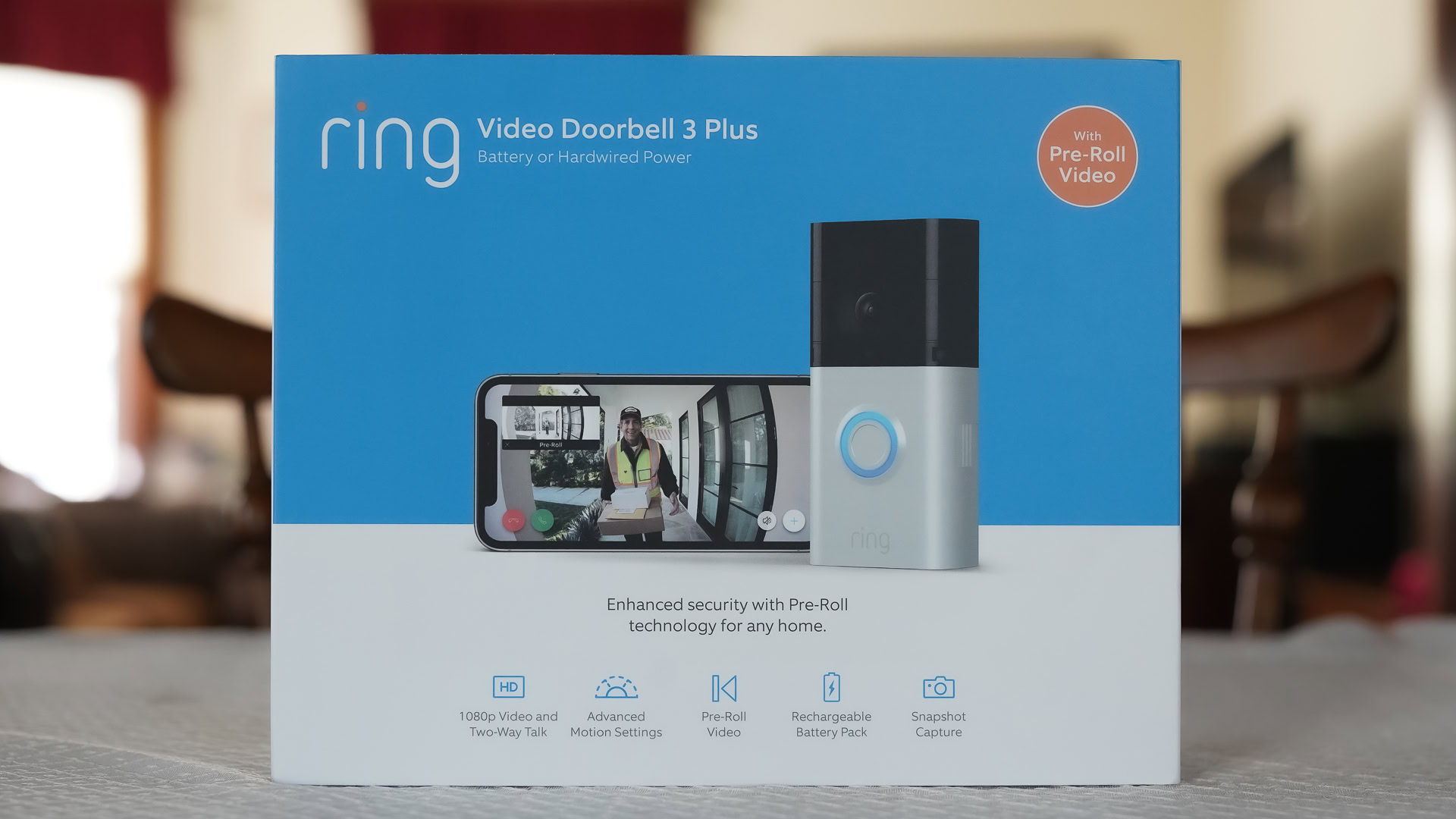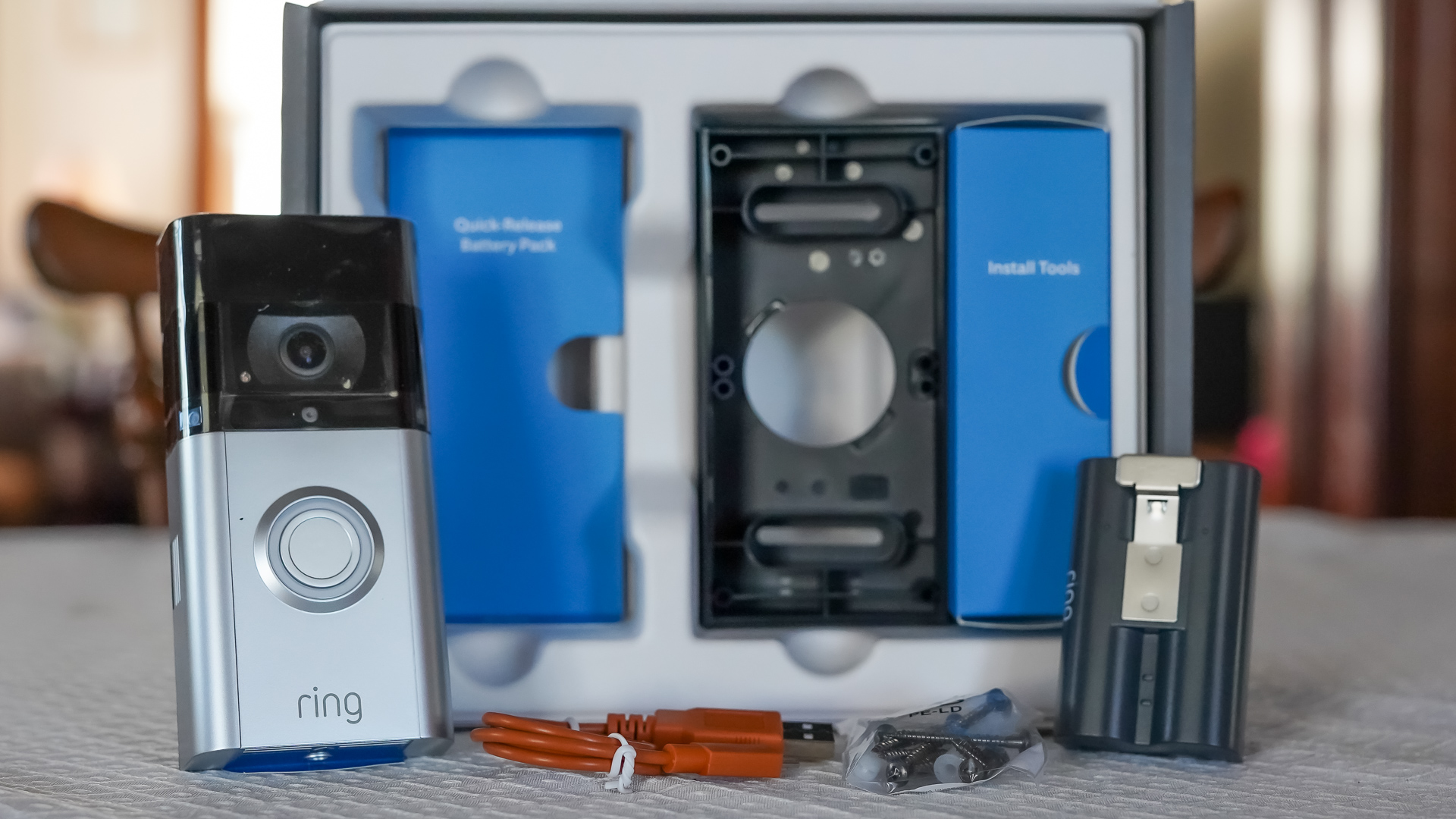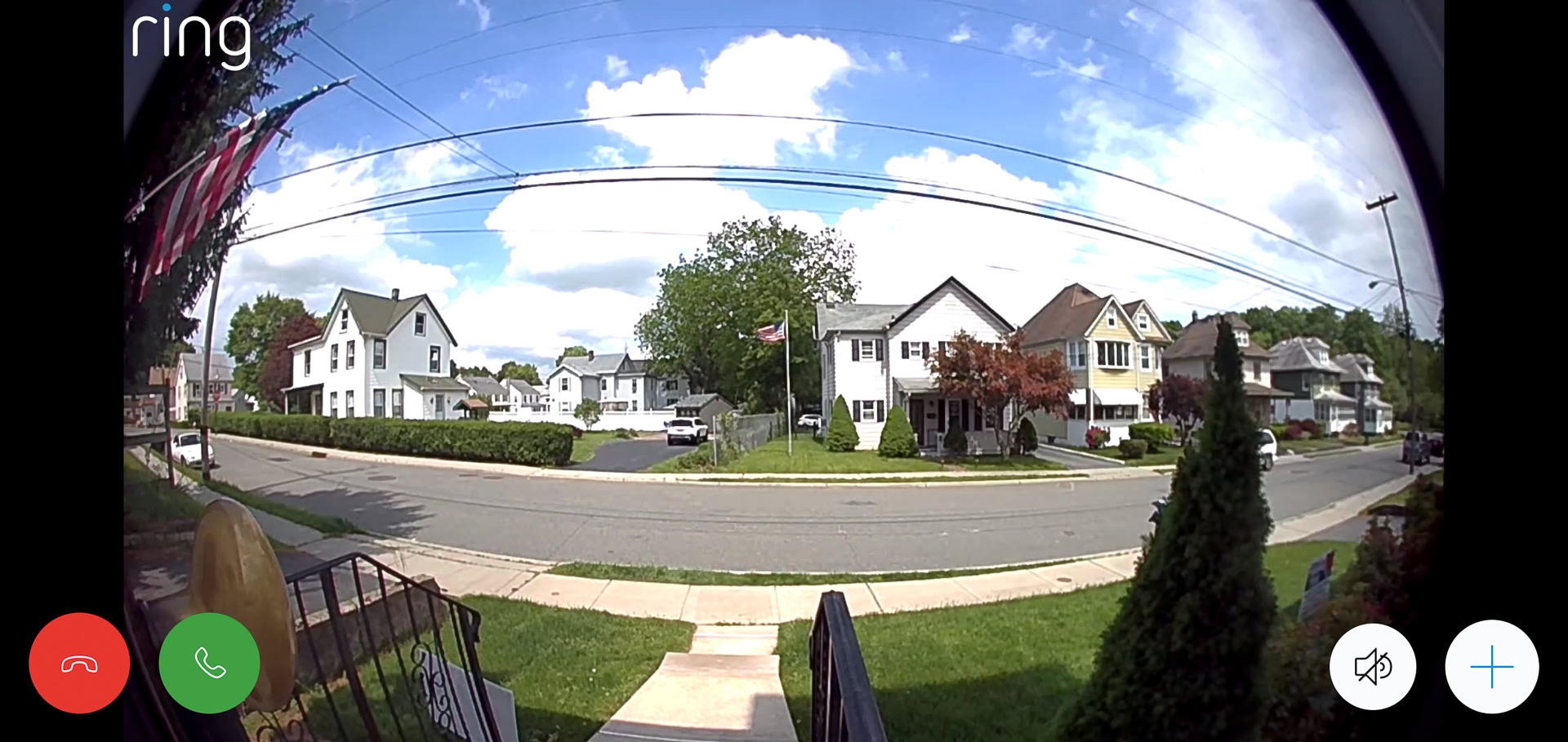Affiliate links on Android Authority may earn us a commission. Learn more.
Ring Video Doorbell 3 Plus review: Pushing all the right buttons

Video doorbells have become one of the simplest and most common ways to protect and keep tabs on our homes. Whether you’re out of town or just stepping out of the shower, the ability to answer the doorbell — complete with video and sound — from your phone is empowering and potentially even life-saving. The Ring Video Doorbell 3 Plus, the newest offering from Ring, adds some fancy features in order to stay abreast of the competition.
With 1080p high-definition video, customizable motion zones, and a quick-release battery pack, is the Ring 3 Plus the best option to stand sentinel? We find out in the Android Authority Ring Video Doorbell 3 Plus review.
Ring Video Doorbell 3 Plus review: Ringing the bell
Ring launched the market for video doorbells back in 2013 when it was known as Doorbot. Ring founder Jamie Siminoff famously went on the Shark Tank television show seeking $700,000 in funding. He was turned down and later raised venture capital from other sources. In 2018 the company sold to Amazon, which folded Ring into its smart home empire.
Seven years and multiple product generations later, Ring now competes in a rich ecosystem. The Ring 3 Plus, announced in April, has some clutch features to help it stand out, such as advanced motion settings and pre-roll video capture to snag those key moments leading up to bell presses. With Arlo, August, Eufy, and Google all seeking a piece of the home security pie, there’s lots of competition amongst video doorbells, which is good news for consumers.
See also: Best security cameras
How hard is the Ring 3 Plus to set up?

If you’re handy with a drill and screwdriver, you shouldn’t have too much trouble installing the Ring Video Doorbell 3 Plus on your home. The box includes most of what you need for the ring doorbell setup.
Video doorbells are either powered by wires or powered by a battery. The Ring 3 Plus includes a battery, but can also be wired to your home. Most homes rely on powered doorbells, so when you remove your old bell you’ll find two low-voltage wires. You may choose to use them and they will keep the battery charged. Wired or not, the first thing you’re going to want to do with the Ring 3 Plus is plug in the battery. It takes a good six hours to charge visa USB.
Installing the Ring 3 Plus requires you to toss your old doorbell and mount the new one to the doorframe. It is much easier to manage if your doorframe is made of wood. If you’re mounting to steel or masonry, be prepared to break out your drill to drill some pilot holes. This ensures the screws are snug without damaging the wood (or gives you the room you need for anchors). The drill bit and screws are provided, as is a screwdriver.
I like that Ring provides several wedges in the kit, which allow you to alter the angle of view if the Ring doorbell is in a corner, or if your entryway is elevated. Simply put the wedge onto the doorframe and then the doorbell onto the wedge. Use a level, if possible, to make sure the doorbell is properly squared off.

Once the doorbell is secured to the wall, slotting the battery under the doorbell button is the next-to-last thing you need to do.
Put on the face plate of your choice, install the security screw and you’re all set. It took me less than 10 minutes. Download the app and away you go.
How is the Ring doorbell app?
The Ring doorbell app is a rich place and can be a tad overwhelming if you just want to get up and running in a hurry. There are various menu panels that allow you to control nearly every facet of the camera and how it responds to bell presses, motion, and such.
Some of the stand-out tools allow you to set privacy screens, which won’t record certain areas of the field of view, strict recording times for door presses, and when/how notifications are delivered to your phone.
It simply takes a bit to wade through it all. I suggest you set aside some time when you’re home for an afternoon to see how your doorbell responds to the goings-on in your neighborhood.
How does the Ring doorbell work?

The Ring 3 Plus is, first and foremost, a video doorbell. When someone presses the button they are connected to your phone where you can see and hear them, and they can hear you. This is a basic feature that the Ring 3 Plus handles well. The 1080p video quality is was a big step up from the 720p quality of video doorbells I’ve previously used. Motion looked smooth and there was no delay.
During setup, you’ll configure your motion zones. Ring has dramatically improved the software and algorithms that determine when motion triggers the camera to capture video. My house is really close to the street. With older doorbells, I wasn’t able to reduce the motion zone enough so that it would ignore the street. This meant the motion sensor went off every time a car drove down the road. That got old. The newer software allowed me to dial in just the right zone, so I could include the sidewalk and front steps, but not the street. This is a huge relief. You can also control sensitivity so it only goes off when humans approach the door. The Ring 3 Plus will ignore skunks and other small animals that wander past your door during the night. Bears are another story.
Pre-roll is the Ring 3 Plus‘ big feature addition. This tool lets you capture four seconds of footage before a motion event. The standard Ring 3 does not include pre-roll capture. Those four seconds can provide vital insight, allowing you to better understand the context of a motion event. Pre-roll footage is recorded in black and white, rather than color, and with no sound. Ring says impact to battery life is minimal.
As always, you can check a live feed from your Ring doorbell at any time.
The Ring 3 and Ring 3 Plus also add support for 5GHz Wi-Fi. Newer Ring products only support 2.4GHz. This is a nice upgrade, which makes it more compatible with modern Wi-Fi networks and routers. I experienced a rock-solid wireless connection during my time with the Ring 3 Plus.
A couple of bummers. First battery life. I’ve found the battery lasts about 30 days. With a six-hour charge time, that’s a huge gap in coverage once per month. Use your home’s preexisting power if at all possible. Moreover, the quality of video captured at night leaves a lot to be desired. Footage is grainy and details are easily lost in the noise.
See also: Best smart home gadgets you can buy
How much do the Ring doorbell plans cost?
The Ring doorbell subscription plans are the gotcha of whole thing. Without a plan, you can see a live view, get motion notifications, and of course answer live calls on your phone. These are basic features included with the purchase price. If you want to record, you have to pony up. Thankfully, the Ring doorbell subscription costs are minimal.
There are two plans: Basic and Plus. Basic costs $3 per month, or $30 per year per device. It includes 60 days of video history, with the ability to share videos. It also includes snapshot capture for taking stills from the video feed. Alternately, the Plus plan costs $10 per month and covers all your devices. This service adds 24/7 professional monitoring for Ring Alarm, extended warranties for all devices, and 10% off purchases made on Ring.com.
See also: What is a smart home?
Ring Video Doorbell 3 Plus review: Should you buy it?

The Ring 3 costs $199.99 and the Ring 3 Plus costs $229.99. Neither price will break the bank, though things will add up if you add secondary cameras and smart lighting. Also, don’t forget a Ring Chime, which costs another $30 to $50, if you want to hear the doorbell in your home. If you’re a little bit budget conscious, perhaps opt for the Ring 3 and the entry-level chime, which together will set you back $299.99. The only feature you’ll lose is pre-roll capture.
These prices are reasonable and aren’t out of step with the cost of other doorbells. Perhaps the most important thing to consider is your relationship with Amazon. Amazon owns Ring, which has been dinged for security. If you’re more of a Google household, perhaps Google’s Nest video doorbell is the best option. For the security and privacy minded, the Eufy makes a lot of sense.
The Ring Video Doorbell 3 Plus is best for people who want a quick-and-easy way to manage their front door and don’t mind the association with Amazon.